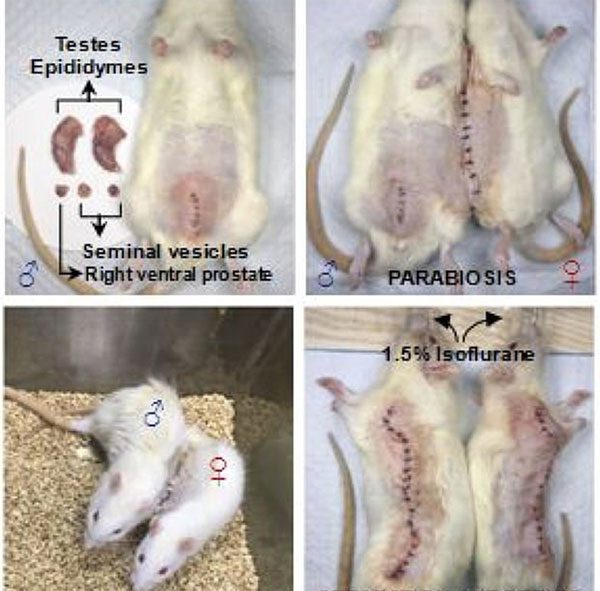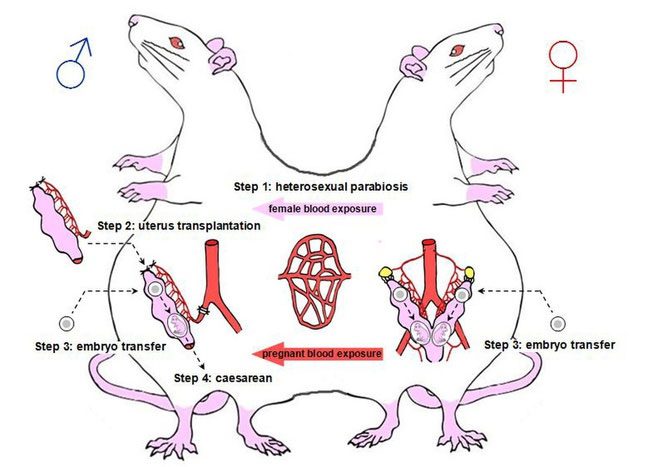Chinese social media is buzzing over a study on the pregnancy and childbirth capabilities of male mice, according to the South China Morning Post.
In the experiment, two researchers from the Naval Medical University of China performed surgery to connect a male mouse and a female mouse, creating a shared circulatory system between them.
Eight weeks after the graft surgery, the research team implanted the uterus of a third female mouse into the male. Subsequently, mouse embryos were implanted into this uterus, as well as into the uterus of the paired female mouse.

The male and female mice grafted together by Chinese scientists. (Photo: Daily Mail)

Diagram of the “pregnant male mouse” experiment by Chinese scientists. (Photo: South China Morning Post).
If the embryos develop into fetuses, the pups will be delivered via cesarean section after 21 days.
According to the research team, out of 163 male mice involved in the experiment, 6 were able to “become pregnant.” The success rate was 3.68%. The pups born from the experiment were normal and without defects.
“Our study reveals the potential for normal fetal development in male mammals. This research could have profound implications for reproductive biology,”</em the authors commented. “To our knowledge, there has been no previous record of a male mammal becoming pregnant.”
However, this experiment has received mixed reactions from the public. After being posted on Weibo, the topic garnered over 330 million views as of the morning of June 20.
“This goes against the laws of nature. What significance do studies like this hold?”</em one account commented, according to the South China Morning Post.
“The experimental process is cruel. It seems both the male and female mice have been turned into breeding machines,”</em another account remarked.
Male pregnancy is a rare natural phenomenon, typically only found in species belonging to the Syngnathidae family, such as seahorses or pipefish. No male mammals can naturally become pregnant.


















































